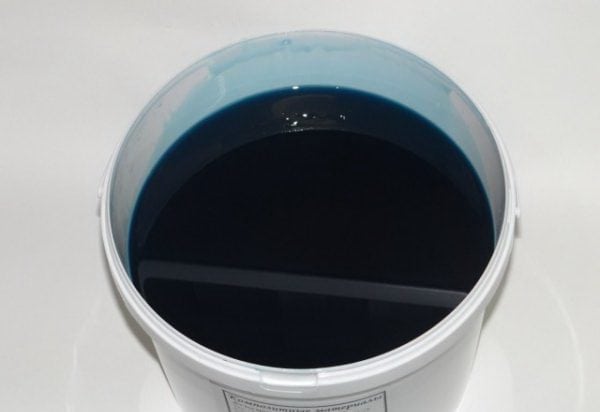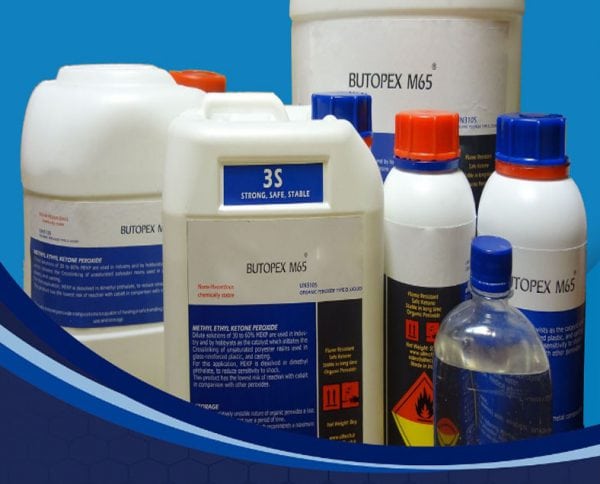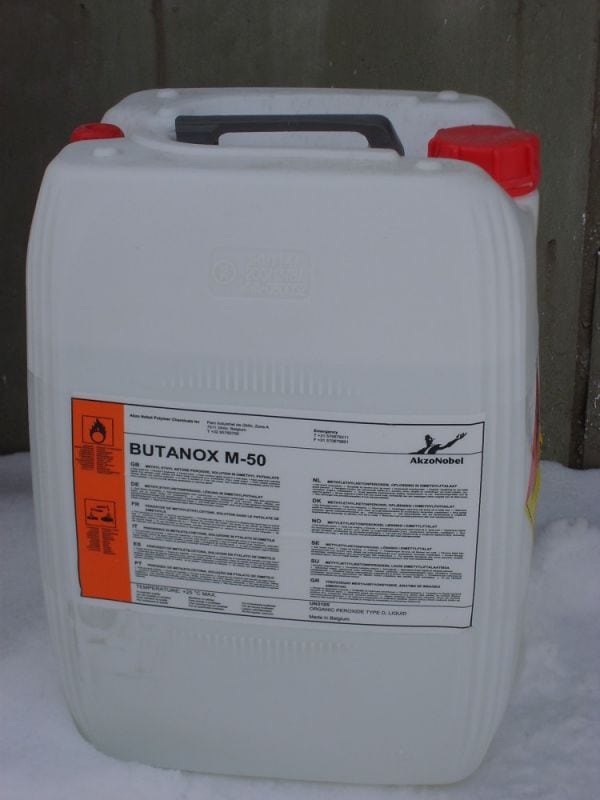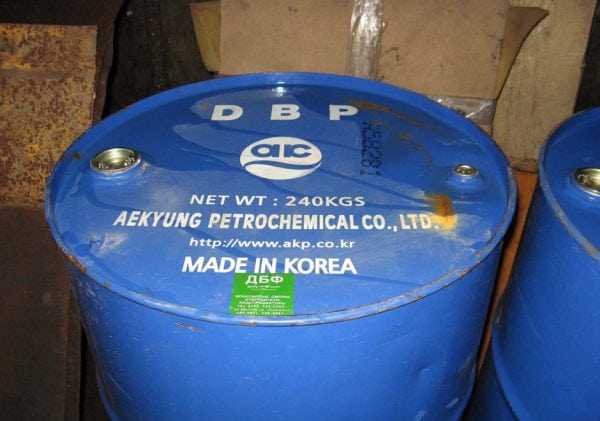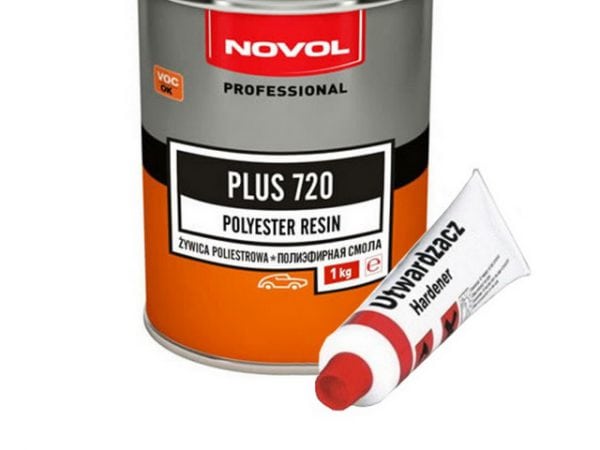Not all paints and varnishes (LKM) can harden on their own - some require the “start” of polymerization processes using special means. These are the so-called hardeners, they accelerate the bringing of materials to working condition. The hardener for the polyester resin must be correctly selected, otherwise the technology will be broken and the quality of the product will suffer.
- Curing - Physics and Chemistry
- Room temperature cure
- Proportions of initiators and accelerators
- High temperature cure
- Reasons for Incomplete Cure
- Resin Precautions
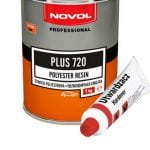
Curing - Physics and Chemistry
The curing of paints and varnishes is an action, as a result of which an irreversible transformation of liquid substances into solid is observed. Conventional coatings harden as liquids — water, solvents — evaporate from them, after which they acquire the final physicochemical properties. But for resins based on polyesters such a process is much more complicated, and they can gain hardness only during a chemical reaction. In contact with certain components, the composition polymerizes and becomes stable.
For this purpose, substances with additives - initiators, accelerators, catalysts are used. It is forbidden to mix different groups of agents with each other, they are introduced into the resin in a certain sequence. After adding the components, the temperature of the resin can increase significantly, sometimes above +100 degrees.
The hardener is involved in the polymerization of resins as follows: it initiates a reaction that causes the solidification of the material. If you know how to breed the resin, observe the exact proportions, you can achieve good quality work. What is used as hardener? Here are the most popular substances:
- carboxylic acids;
- diamines of carboxylic acids;
- carboxylic anhydrides.
to contents ↑The addition of hardeners significantly speeds up the polymerization process. The latter is triggered by radicals that form during a chemical reaction. As soon as the inhibitor is used up, the resin becomes viscous, can no longer flow, and passes into a gel state. Later, the gel “freezes”, acquires a rubbery state, and finally solidifies.
Room temperature cure
Breeding is recommended at temperatures above +23 degrees. As an initiator (component of the hardener), Butanox is used - a solution of cyclohexanone peroxide. As an accelerator, a solution of cobalt octoate on styrene (OK) is used. It can be replaced with an accelerator cobalt naphthenate (UNK).
The work includes the following stages:
- measure the right amount of polyester resin and accelerator;
- connect the components;
- mix the composition well;
- add initiator, mix again;
- carry out molding before gelation occurs (after 50-120 minutes, depending on the type of resin);
- if the start of gelation is required faster, you can increase the temperature in the room;
- hardening usually occurs in 12-24 hours.
The build-up of strength will be longer, at normal room temperature the process can take more than 14 days. Heat treatment at a temperature of +100 degrees for an hour will reduce this period to several days.
to contents ↑Proportions of initiators and accelerators
How much hardener to add to the resin? As already mentioned, for the polymerization requires three components - the actual resin, accelerator, hardener (initiator). You can determine the ratio only according to the instructions that each manufacturer attaches to the material. In the future, you can independently determine the required volume of components, this will be clear based on the speed and quality of the cure.
to contents ↑Since the viability of the resin does not last long after the introduction of the hardener, only the necessary amount of components should be used. The rest will irreparably go bad. It is better to start with a small volume (less than a liter). After the introduction of each substance, the mass is mixed, but carefully so that there are no extra air bubbles. It is recommended to have time to do this within 2 minutes.
High temperature cure
Higher temperatures than room temperature accelerate the curing of resins. As an initiator, it is better to take benzoyl peroxide 50% in the form of a solution on dibutyl phthalate. Usually enough 2-3% of the weight of the resin. After the introduction of the solution, the mass is kneaded, brought to a temperature of + 100 ... + 30 degrees. If a solution of dicumyl peroxide is used, the temperature is increased to +160 degrees.
to contents ↑Reasons for Incomplete Cure
It happens that the resin at the end of all work does not find the desired hardness. The surface remains sticky, the strength is low. If the partial cure is temporary, it can easily be eliminated by raising the temperature to + 100 ... + 130 degrees. Permanent incomplete solidification cannot be removed; the mass will be spoiled. How to avoid such problems? Here are the key recommendations:
- do not cure at temperatures less than +23 degrees, humidity more than 65%;
- Do not change the manufacturer recommended component proportions for a specific polyester resin;
- exclude the penetration of contaminants, impurities, use only clean dishes.
The last point is especially important to observe, since even a small amount of fat, water and other substances violates the polymerization process. Poor effect on the quality of the mixture and polluted air, especially with phenol vapor. Upon completion of the work, the surface of the resin is covered with a film. This will not allow the mass to come into contact with air.
to contents ↑
Resin Precautions
In order not to harm yourself, you need to work with the described chemicals in gloves, tight clothing. If it comes into contact with the skin, it is washed with soap, if there is a substance for cleaning the resins, they are wiped with skin and then washed. Respiratory protection with a respirator, this item is a must! Due to the combustibility of substances, it is important to completely eliminate contact with fire. When igniting, do not use water; sand or a fire extinguisher must be used. Resin is stored at a temperature of + 20 ... + 23 degrees without access of heat in a ventilated room.

